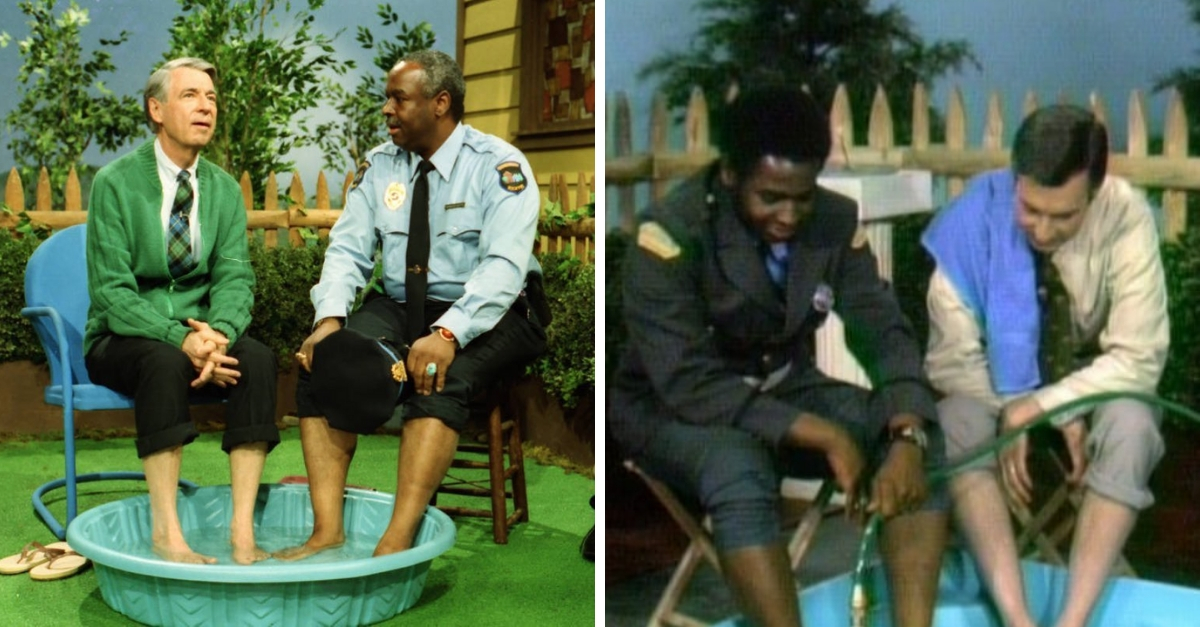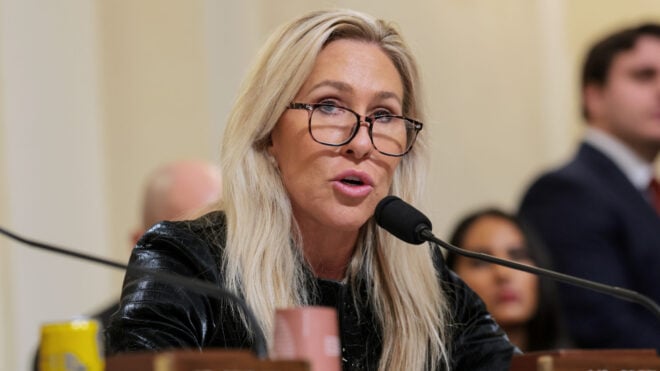
Mister Rogers' Neighborhood was a pivotal teaching tool in the childhoods of many. Fred Rogers always seemed to be on the right side of kindness and humanity. We've learned more about America's neighbor in recent years, thanks to various projects. Through it all, we've learned Fred was always willing to take a stand for what was important to him.
As so many parents grapple with ways to talk to their children about current events, Mister Rogers moments have reappeared on social media. One trending clip is from 1969 and involves the issue of racial segregation at pools. Fred re-created the same moment with the same actor in a different context in 1993.
The man sitting next to Fred in these unforgettable moments was actor François Clemmons, who played a police officer named Officer Clemmons. François has spoken about the impact of those two moments on a few occasions. Now he's also looking at what it meant to be a black police officer in Mister Rogers' neighborhood.
Fred Rogers has shaped children's views of the world and its need for kindness for generations. Mister Rogers' Neighborhood, which aired from 1968 to 2001, helped children understand the world around them. Although Fred himself died 17 years ago, his legacy lives on in all the lives he touched.
The messages Fred shared with countless children around the world are still very relevant today. In the wake of current events that are forcing our country to look at its history of race relations, two instances of Fred's ability to teach and lead have been highlighted. They're being shared across social media as a reminder of how to broach serious subjects like racism with children.
The first of the clips gaining popularity is from 1969. It features Fred and Officer Clemmons, a black police officer played by actor François Clemmons. François told StoryCorps that Fred approached him about the role after seeing him sing in church.
"Fred came to me and said, 'I have this idea: You could be a police officer,'" he recalled.
François wasn't sold on the idea. "I grew up in the ghetto. I did not have a positive opinion of police officers. Policemen were siccing police dogs and water hoses on people," he explained.
"And I really had a hard time putting myself in that role. So I was not excited about being Officer Clemmons at all."
He eventually came around to the role and became the first recurring black character on the show, and on any children's show. The show was in its second year when the iconic scene aired.
"He invited me to come over and to rest my feet in the water with him," François recalled.
"The icon Fred Rogers not only was showing my brown skin in the tub with his white skin as two friends, but as I was getting out of that tub, he was helping me dry my feet."
"I think he was making a very strong statement. That was his way," François said of the scene.
"I still was not convinced that Officer Clemmons could have a positive influence in the neighborhood and in the real-world neighborhood, but I think I was proven wrong."
In an interview with WBUR last month, François recalls his changing feelings about that moment and what it meant, then and now.
"I thought [that moment] was kind of light. I was expecting something like maybe calling [Dr. Martin Luther King, Jr.] up or calling the president up or saying, you know, this is amoral and some kind of curse on these people, and he didn't do that at all," he said.
"He said, 'Come, come sit with me.' And he said, 'You can share my towel.' My God, those were powerful words. It was transformative to sit there with him, thinking to myself, 'Oh, something wonderful is happening here. This is not what it looks like. It's much bigger."
"And many people, as I've traveled around the country, share with me what that particular moment meant to them, because he was telling them, 'You cannot be a racist.'" he continued.
"And one guy or more than that, but one particularly I'll never forget, said to me, 'When that program came on, we were actually discussing the fact that black people were inferior. And Mister Rogers cut right through it,' he said. And he said essentially that scene ended that argument."
The two re-created the poignant moment in 1993, during their last episode together. This time, Fred was just soaking his feet after a long day. Officer Clemmons joined him yet again, a testament to their long-lasting friendship.
François shared more about his experiences as Fred's friend and castmate in his memoir Officer Clemmons. In it, he also discusses his background, including the childhood trauma that led him to find music and devote his life to it. François powerfully notes that Fred never made him feel like he owed his fame to him, as some have commented over time. Rather, he shared what was special to him with a friend. The rest was history.




